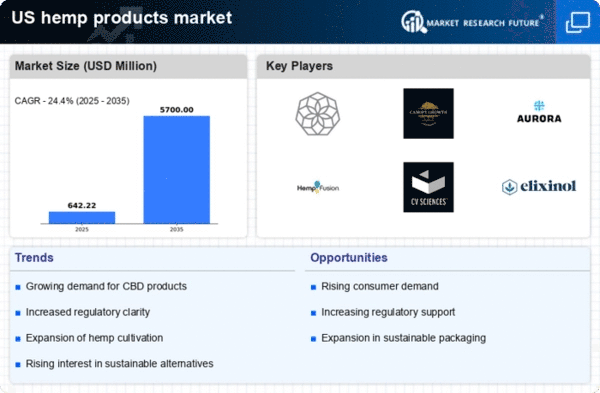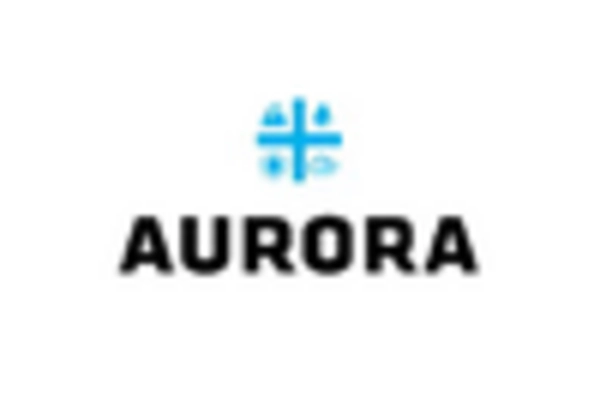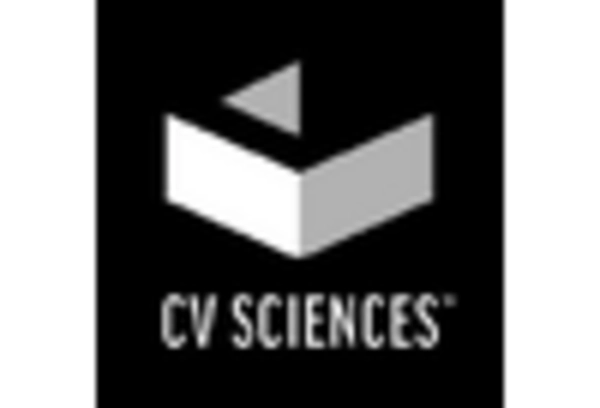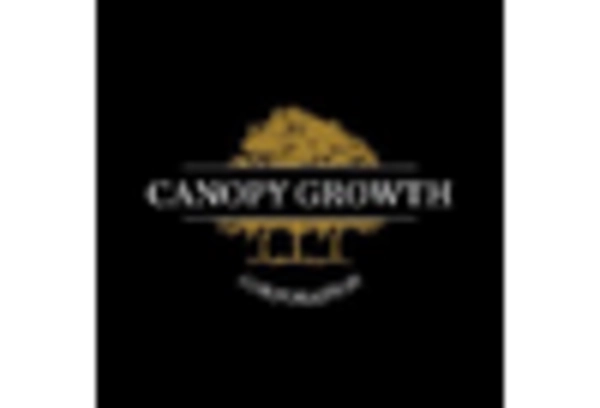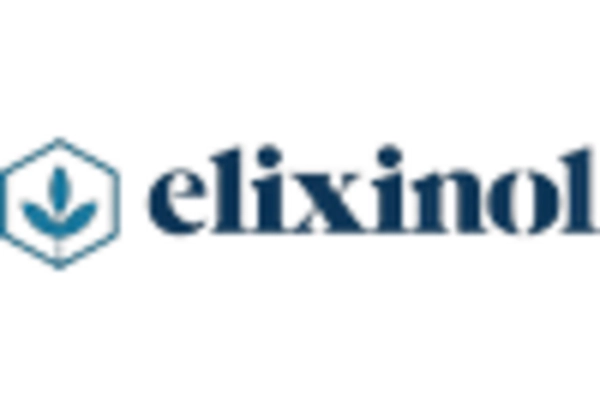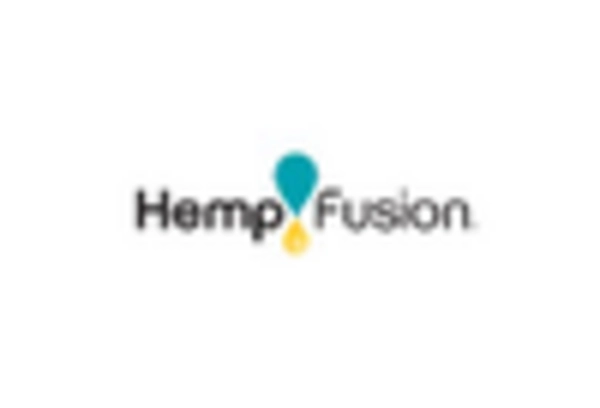Innovations in Hemp Processing Technologies
Advancements in processing technologies are playing a crucial role in shaping the hemp based-products market. Innovations such as improved extraction methods and refining processes have enhanced the quality and efficiency of hemp-derived products. For instance, the introduction of CO2 extraction techniques has allowed for higher purity levels in CBD oils, which are increasingly sought after in the wellness sector. This technological evolution not only boosts product quality but also reduces production costs, making hemp products more accessible to a broader audience. As a result, the market is likely to witness a diversification of product offerings, including edibles, beverages, and health supplements. The ongoing research and development in processing technologies suggest that the hemp based-products market will continue to evolve, catering to the growing consumer base that values quality and efficacy.
Rising Consumer Demand for Natural Products
The hemp based-products market is experiencing a notable surge in consumer demand for natural and organic products. This trend is driven by an increasing awareness of health and environmental issues among consumers. As individuals seek alternatives to synthetic ingredients, the appeal of hemp-based products, which are perceived as eco-friendly and sustainable, becomes more pronounced. According to recent data, the market for natural personal care products has grown by approximately 10% annually, indicating a shift in consumer preferences. This rising demand is likely to propel the hemp based-products market forward, as manufacturers respond by expanding their offerings to include hemp-derived ingredients in cosmetics, food, and textiles. The growing inclination towards clean-label products suggests that the hemp based-products market will continue to thrive as consumers prioritize transparency and sustainability in their purchasing decisions.
Expansion of Retail Channels for Hemp Products
The hemp based-products market is benefiting from the expansion of retail channels, which enhances product accessibility for consumers. Traditional retailers, e-commerce platforms, and specialty health stores are increasingly stocking hemp-derived products, reflecting a shift in retail strategies. Data indicates that online sales of hemp products have surged, with e-commerce accounting for over 30% of total sales in the sector. This trend is likely to continue as consumers prefer the convenience of online shopping and the ability to compare products easily. Furthermore, partnerships between hemp producers and established retail chains are facilitating greater market penetration. As retail channels diversify, the hemp based-products market is expected to grow, reaching new customer segments and increasing overall market visibility.
Growing Interest in Hemp as a Sustainable Crop
The hemp based-products market is witnessing a growing interest in hemp cultivation as a sustainable agricultural crop. Farmers are increasingly recognizing the economic benefits of hemp, which requires fewer resources compared to traditional crops. Hemp's ability to thrive in diverse soil conditions and its low water requirements make it an attractive option for sustainable farming practices. Additionally, the crop's potential for soil remediation and carbon sequestration aligns with environmental goals, further promoting its adoption. As more farmers transition to hemp cultivation, the supply chain for hemp-based products is likely to strengthen, leading to lower prices and increased availability. This trend suggests that the hemp based-products market will continue to expand, driven by both environmental considerations and economic incentives for farmers.
Increased Investment in Hemp Research and Development
Investment in research and development within the hemp based-products market is on the rise, reflecting a commitment to innovation and product improvement. Funding from both private and public sectors is being directed towards exploring the full potential of hemp, including its applications in pharmaceuticals, textiles, and biofuels. This influx of capital is likely to accelerate the development of new products and technologies, enhancing the market's competitiveness. For instance, studies are being conducted to investigate the therapeutic benefits of hemp compounds, which could lead to groundbreaking advancements in health and wellness products. As research continues to unveil the versatility of hemp, the market is expected to benefit from a broader range of offerings, catering to diverse consumer needs and preferences.


